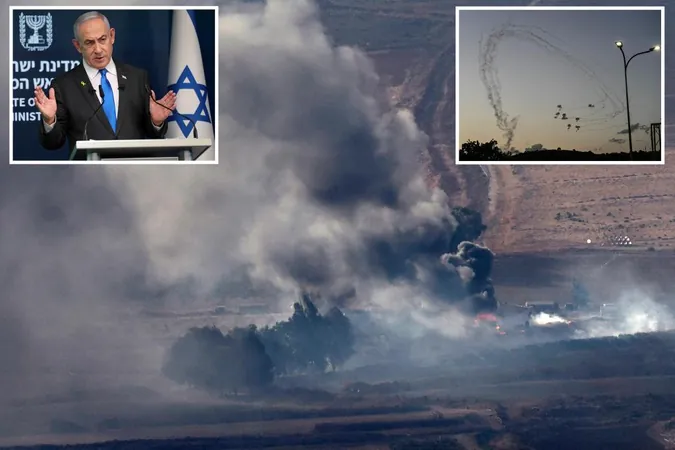
Netanyahu Faces Pressure Amid Calls for Leadership Change as Hezbollah Threats Escalate
2024-09-17
Introduction
Prime Minister Benjamin Netanyahu is reportedly contemplating a significant reshuffle in his administration as Israel's priority shifts toward halting attacks from Hezbollah. This aim has become an officially recognized goal of the ongoing war.
Speculation on Leadership Changes
Israeli media outlets have suggested that Netanyahu is considering the removal of Yoav Gallant, his Minister of Defense, who has been a central figure in Israel's military strategy. Gallant, a 65-year-old member of Netanyahu's hard-line Likud party, and Netanyahu have reportedly had differing views on several occasions during the war against Hamas, as highlighted by the New York Times.
Rumors of Replacement
As speculation mounts, rumors indicate that Gideon Sa’ar from the right-wing New Hope faction may step into Gallant's role, although Netanyahu's office has labeled these reports as “incorrect.” The potential move has led to criticism from political opponents; National Unity chairman Benny Gantz accused Netanyahu of "security recklessness," claiming such a change could jeopardize Israel’s national security amid ongoing conflict.
Concerns from Political Opponents
Gantz articulated his concerns: “What Netanyahu is doing endangers Israel’s security in the most tangible way that I can remember having been done by a prime minister during a war.” He emphasized that the Israeli emergency government was formed to prioritize national issues over political maneuvering, implying Netanyahu's actions are now dangerously politicizing the war effort.
Business Leaders' Warnings
Business leaders within the Israel Business Forum have echoed these concerns, warning that dismissing Gallant could project weakness to adversaries and adversely affect Israel's struggling economy. They posited that replacing the defense minister for political gains would worsen the already significant frustrations among citizens bearing the brunt of military service and economic challenges.
Tensions Along the Israel-Lebanon Border
Tensions along the Israel-Lebanon border have escalated over the past 11 months, with both Hezbollah and the Israel Defense Forces engaged in almost daily exchanges of fire. Hezbollah’s aggressive posture escalated dramatically following the initial Hamas attacks on Israel on October 7, 2023, leading to rampant violence, displacement of thousands, and multiple casualties on both sides.
Ongoing Military Actions
Despite Israel's ongoing airstrikes against Hezbollah leadership and military positions, the government has faced persistent pressure from the United States to uphold a cautious approach, warning against the potential pitfalls of a broader conflict. U.S. envoy Amos Hochstein, following discussions with Netanyahu, reiterated that increased military efforts against Hezbollah would not expedite the return of displaced residents and could lead to a prolonged regional war.
Netanyahu's Response to Pressure
Netanyahu has responded to both international and domestic pressure, stating that residents from the north would not be able to return home without “a fundamental change in the security situation.” He reaffirmed his stance, insisting that while Israel "respects" U.S. support, it will take necessary actions to ensure its own security.
Conclusion
As the situation continues to evolve, the potential leadership changes, ongoing military actions, and international diplomacy will be crucial to shaping the future of Israel’s security landscape and regional stability. With the shadow of Hezbollah looming large, the decisions made in the coming days could have far-reaching implications for both the Israeli government and its citizens.

 Brasil (PT)
Brasil (PT)
 Canada (EN)
Canada (EN)
 Chile (ES)
Chile (ES)
 España (ES)
España (ES)
 France (FR)
France (FR)
 Hong Kong (EN)
Hong Kong (EN)
 Italia (IT)
Italia (IT)
 日本 (JA)
日本 (JA)
 Magyarország (HU)
Magyarország (HU)
 Norge (NO)
Norge (NO)
 Polska (PL)
Polska (PL)
 Schweiz (DE)
Schweiz (DE)
 Singapore (EN)
Singapore (EN)
 Sverige (SV)
Sverige (SV)
 Suomi (FI)
Suomi (FI)
 Türkiye (TR)
Türkiye (TR)